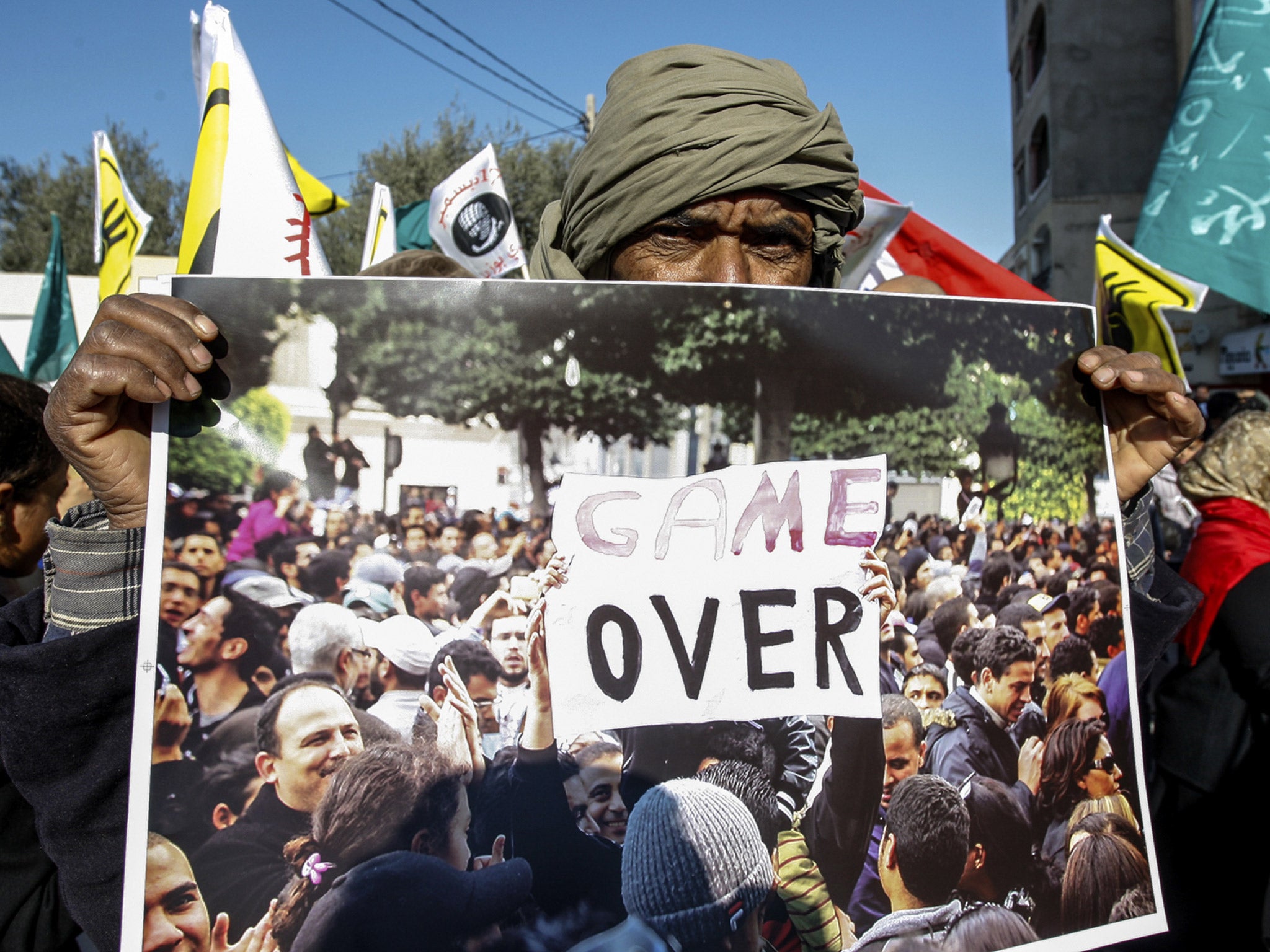Arab Spring’s source carries on legacy as truce is called in Tunisia’s culture wars
It appears to be the last Arab Spring country to have a shot at completing a transition to democracy following last ditch negotiations between secularists and Islamists

Your support helps us to tell the story
From reproductive rights to climate change to Big Tech, The Independent is on the ground when the story is developing. Whether it's investigating the financials of Elon Musk's pro-Trump PAC or producing our latest documentary, 'The A Word', which shines a light on the American women fighting for reproductive rights, we know how important it is to parse out the facts from the messaging.
At such a critical moment in US history, we need reporters on the ground. Your donation allows us to keep sending journalists to speak to both sides of the story.
The Independent is trusted by Americans across the entire political spectrum. And unlike many other quality news outlets, we choose not to lock Americans out of our reporting and analysis with paywalls. We believe quality journalism should be available to everyone, paid for by those who can afford it.
Your support makes all the difference.It is three years to the day since Tunisian street vendor Mohamed Bouazizi set himself on fire and sparked a wave of uprisings throughout the Arab world. Today, Libya’s oil is in the hands of militias, Egypt’s military tightens its hold on power, and Syria is churning out refugees from its brutal civil war.
Tunisia appears to be the last Arab Spring country to have a shot at completing a transition to democracy following last ditch negotiations between secularists and Islamists.
The appointment of the politically neutral Prime Minister Mehdi Jomaa, previously Minister of Industry, brought to an end months of bickering between the Islamist Ennahdha party and the secularist opposition.
Ennahdha agreed to give up power after the July assassination of secularist politician Mohamed Brahmi, which was blamed on Islamist sympathisers.
“We consider that [Jomaa] is someone independent and we must support him. He’s a technocrat who’s managed several large companies and in his ministry he did a good job,” said Mahmoud Baroudi of the Democratic Alliance, one of the secularist-leaning parties.
Baroudi’s optimism was echoed by a chorus of support from Western dignitaries such as UK Foreign Secretary William Hague and EU foreign policy representative Catherine Ashton, who both released official statements praising the naming of Jomaa.
But if Tunisia has taken a step towards stable democracy, its path ahead is still fraught with danger. That danger was evident, when the President, Prime Minister, and head of parliament were forced to cancel a planned visit to Sidi Bouzid – where protests first erupted three years ago – citing “security concerns.” At last year’s ceremony in the town, they were greeted at the podium with a hail of rocks, so their decision to celebrate the anniversary of Tunisia’s uprising in the president’s lavish Carthage palace is perhaps understandable.
Popular anger is largely due to the economy: unemployment stands at 15.4 per cent, and at 24.4 per cent in Sidi Bouzid. Rising prices have hurt struggling households.
On the political front, the compromises Ennahdha has made with the secular opposition – and with Western partners – has cost them the support of some of their followers. A protest at the seat of government drew hundreds of disillusioned Islamists, such as Rached Khiari, who campaigned for Ennahdha in the 2011 elections but who has turned against the party.
“[The choice of new Prime Minister] is just Ennahdha playing politics. It’s the ambassadors of the EU and the US who chose Mehdi Jomaa,” said Khiari, who works as a journalist with the Islamist-leaning Sada website.
Disappointment in Ennahdha’s soft brand of Islamism may also be part of the rise of more extreme jihadist Islamism in the country. Recent reports have placed Tunisia as among the top source countries supplying fighters to the conflict in Syria. At today’s Islamist demonstration in the capital, a young man was overheard complaining, “All the best ones have gone to Syria.”
As those fighters return home, Tunisia could see more acts of violence like the two assassinations, attributed to jihadist group Ansar Al-Sharia, which brought its democratic process to a halt for much of the year. The fear of such violence has led police in Tunisia to conduct a harsh crackdown, drawing accusations of torture and arbitrary arrest from international NGOs.
Only the success of elections next year will give a true index of whether Tunisia’s light will continue to shine as the beacon of hope for the Arab world’s democratic aspirations, or be put out in the storm of regional unrest.
Join our commenting forum
Join thought-provoking conversations, follow other Independent readers and see their replies
Comments